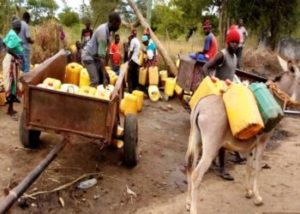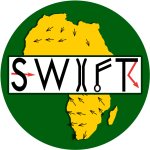 We were excited to welcome Dr Chris Paterson (Media and Communications, University of Leeds) and Dr Lata Narayanaswamy (POLIS, University of Leeds) to lead our February seminar, hosted jointly with fellow GCRF programme AFRICAP and the Leeds University Centre for African Studies (LUCAS).
We were excited to welcome Dr Chris Paterson (Media and Communications, University of Leeds) and Dr Lata Narayanaswamy (POLIS, University of Leeds) to lead our February seminar, hosted jointly with fellow GCRF programme AFRICAP and the Leeds University Centre for African Studies (LUCAS).
Focusing on work funded by the university’s quality-related Global Challenges Research Fund allocation, Drs Paterson and Narayanaswamy presented research conducted by a wider team in Kenya and the UK with two key objectives:
- to explore how to provide nuanced understandings of how the local information ecosystem in rural Kenyan communities operates
- to understand its effects on women’s ability to combine indigenous and externally-sourced knowledge in climate change adaptation
Using a multi-site quasi-ethnographic approach, the research was conducted in two rural communities in Kenya – Makueni and Kisumu – and used interview and observation techniques to understand how and why women are able to access as well as influence knowledge processes and information dissemination related to climate change adaptation. The research revealed that a range of communications channels are used with a preference for radio and mobile phones, though the information – particularly on weather and alternative seed varieties – it not always accessible in a timely manner. In addition, while many women are knowledgeable on climate change adaptation, their agency is limited by their wide-ranging community roles that go beyond agriculture. Suggestions emerging from the project to address these challenges include more informational and material resources to facilitate climate change adaptation and a ‘listening infrastructure’ to allow grassroots communities to feed up to decision- and policy-makers on their needs and experiences. The research team will be conducting a follow-up study during 2020 to include both Kenya and Ghana.
As well as staff and students at the University of Leeds, we were delighted to be joined by over 20 remote participants from a range of countries, including Kenya, Nigeria and Niger. For those who weren’t able to make it, the recording and slides are now available.
